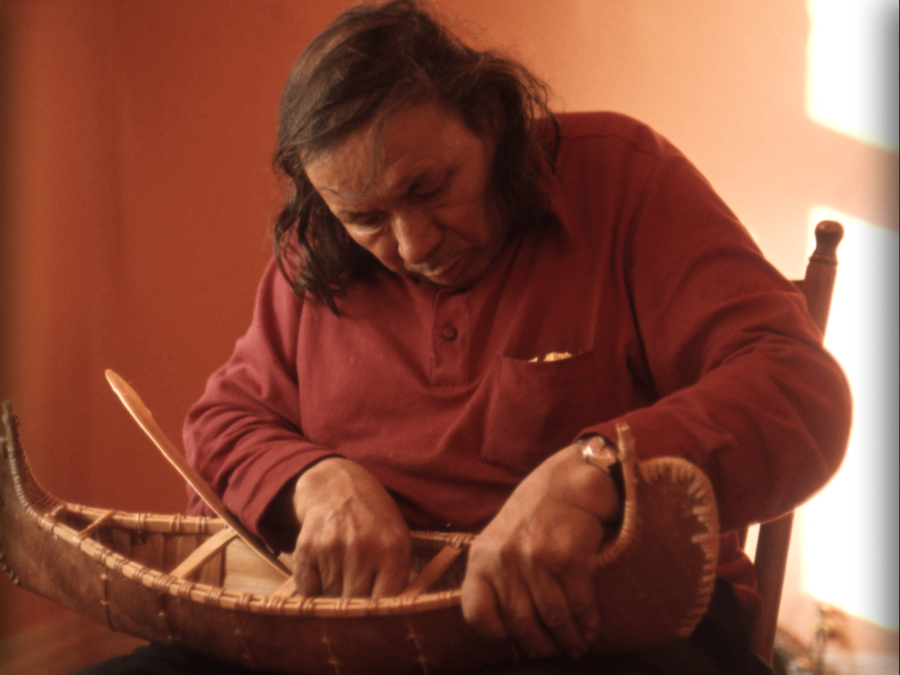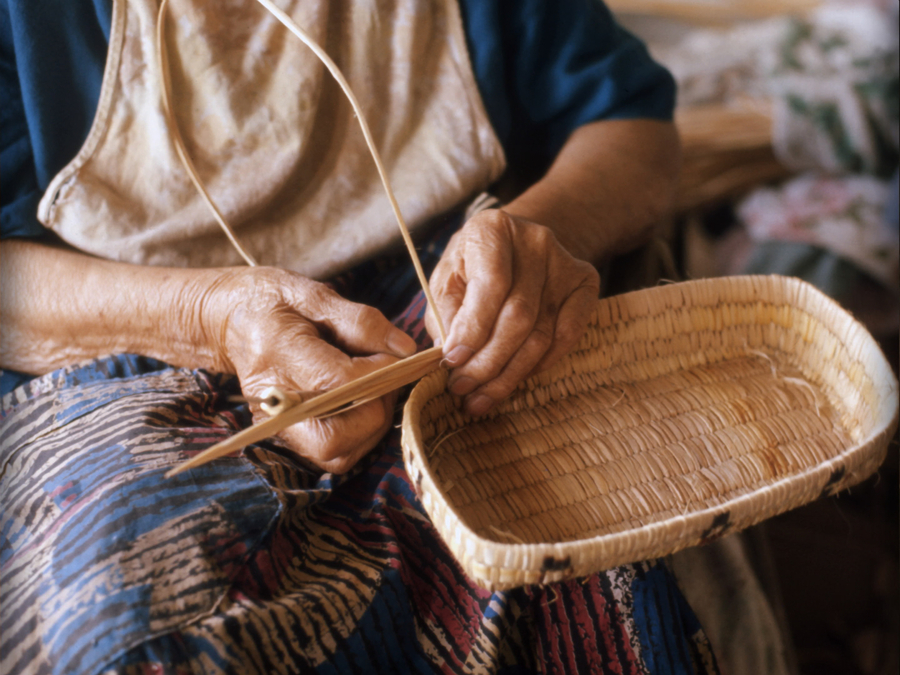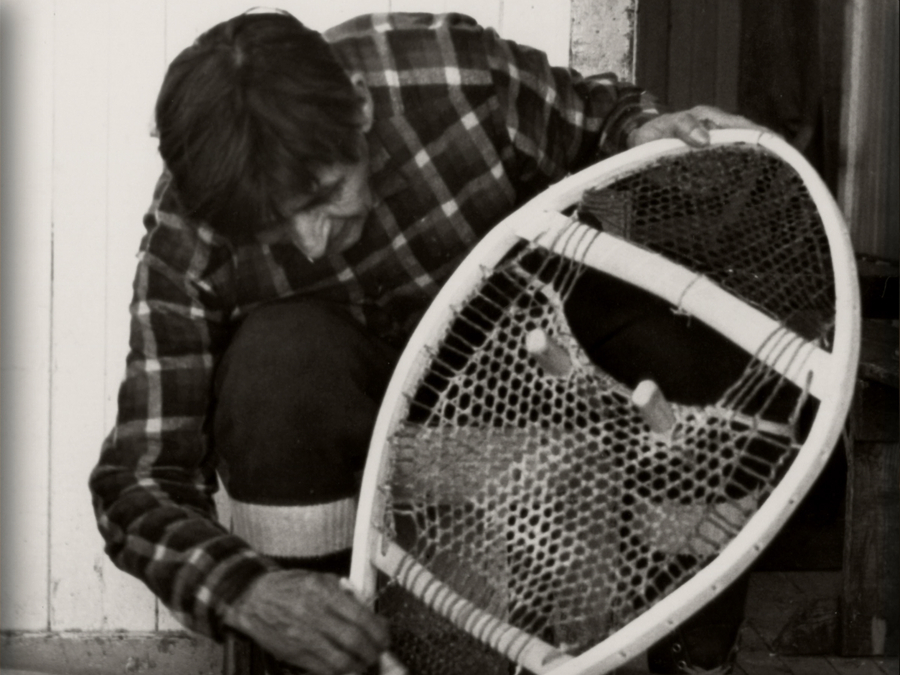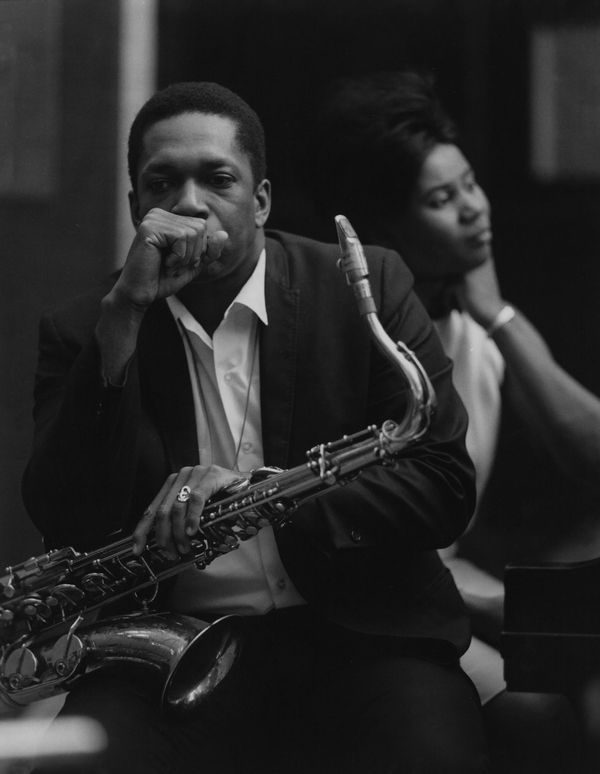 Alanis Obomsawin, The Canoe, 1975, single channel video (still). © National Film Board of Canada
Alanis Obomsawin, The Canoe, 1975, single channel video (still). © National Film Board of CanadaAt the start of her filmmaking career, Abenaki artist Alanis Obomsawin created educational filmstrips for the National Film Board of Canada (NFB), amplifying Indigenous voices and histories. This selection features three short films from her 1970s series L’íl’wata and Manawan, documenting traditional canoe building, snowshoe making, and basket weaving—challenging colonial narratives and highlighting Indigenous knowledge through classroom-based media.
Every time I make a film, I’m always thinking about education. It is important because this is where the power is, that’s how you get people to know what the true story is of our people. Our history and teaching have a lot of power.
— Alanis Obomsawin, 2023
 Alanis Obomsawin, Basket, 1975, single channel video (still). © National Film Board of Canada
Alanis Obomsawin, Basket, 1975, single channel video (still). © National Film Board of Canada Alanis Obomsawin, Snowshoe, 1972, single channel video (still). © National Film Board of Canada
Alanis Obomsawin, Snowshoe, 1972, single channel video (still). © National Film Board of CanadaAt the outset of her career with the NFB—Canada’s leading public film producer and distributor—Obomsawin began a series of film shorts aimed at students. They featured the personal narratives, voices, and history of members of the Líl’wat Nation in British Columbia, and the Atikamekw Nation in Manwan, Quebec. An established singer and storyteller but a relative newcomer to the world of cinema, Obomsawin conceived the series L’íl’wata (1972) and Manawan (1975) as filmstrips, a visual format widely distributed in Canadian educational settings in the early 1970s. Presented in classrooms, her short reels of still images quietly contradicted established, discriminatory colonial representations to highlight Indigenous culture and knowledge.
All works are single-channel videos presented by The Image Centre in partnership with the National Film Board of Canada.
Curated by Gaëlle Morel











































